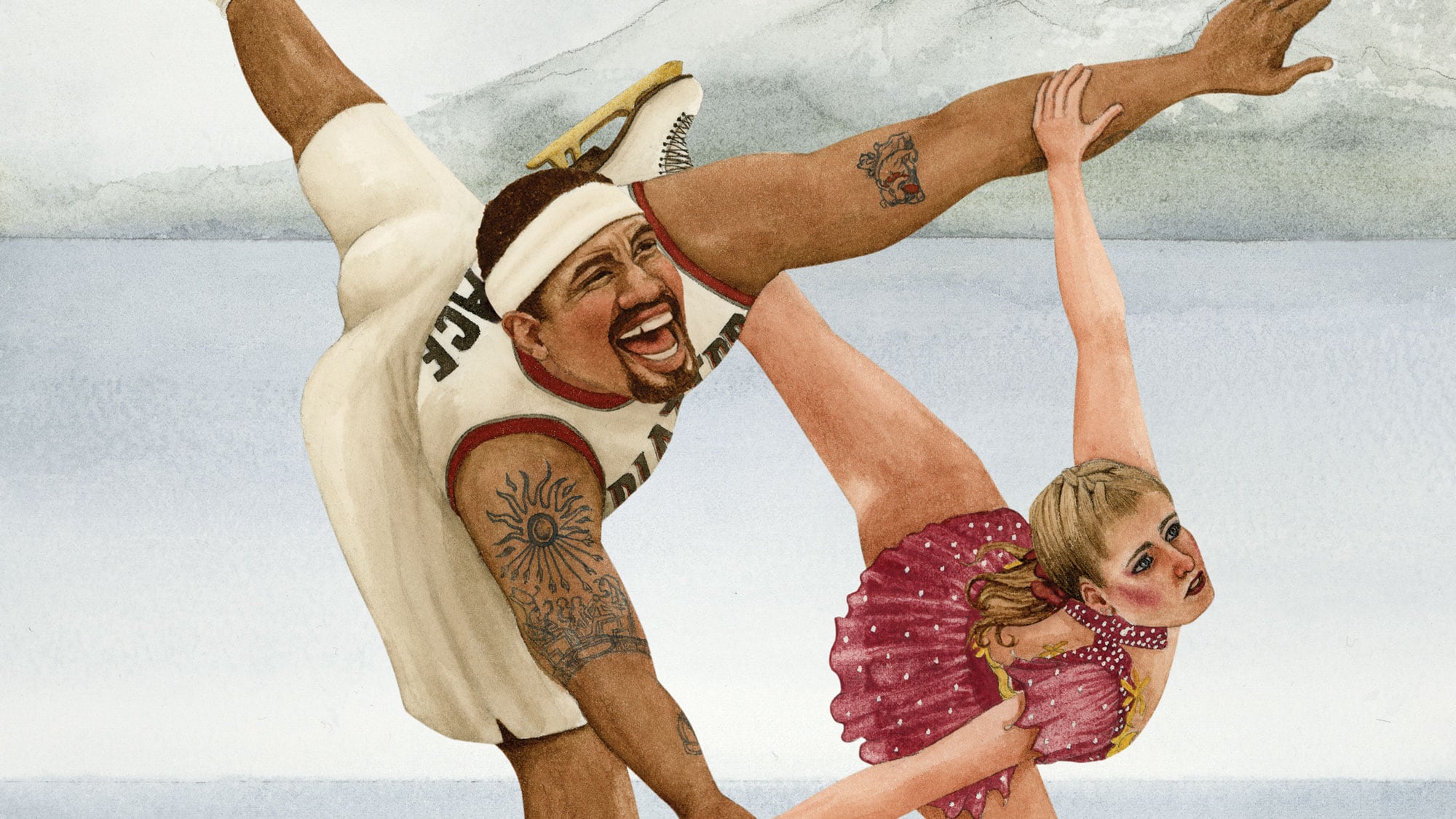This month, the biggest villain in Portland sports found a Hollywood ending.
Figure skater Tonya Harding has become the subject of an Oscar-buzzed movie: I, Tonya. The flick's acclaim got her a trip to the LA red carpet, a write-up in The New York Times, and an interview on ABC News. People who derided Harding as a criminal in 1994 are reassessing her now as a victim of abuse and sexism—maybe even a feminist hero.
That got us to thinking: If Harding gets a redemption, what about Rasheed Wallace and Damon Stoudamire?

The professional basketball players on the Portland Trail Blazers in the early 2000s received at least as bad a rap as Harding. They even got a collective nickname: the Jail Blazers.
From approximately 1997 to 2005, fans abandoned the Blazers like the Rose Garden was on fire. The conventional wisdom was that the Blazers' roster consisted of nothing but criminals and troublemakers.
And, OK, there's some truth to that.
Qyntel Woods staged dogfights with his pit bulls. Bonzi Wells flipped the bird to fans. Wallace and Stoudamire were pulled over for getting high while speeding down the freeway in a Hummer. Derek Anderson abandoned his team in the middle of a game to get some McDonald's. Blazers threw towels and punches at each other; blood splattered the Rose Garden court. Cops caught Isaiah Rider smoking weed out of a soda can in Lake Oswego as if an NBA player couldn't afford to invest in some Swisher Sweets.
Last year, the Blazers organization celebrated the 40th anniversary of the team's 1977 championship with Jumbotron videos and half-court interviews. This year, the team is unlikely to hold a similar celebration to mark the 15th anniversary of Sheed saying he'd play for anybody who'd "cut that check."
But those Blazer teams deserve a reappraisal.
For one thing, the scorn directed at those teams looks very different today. To be frank: Portland was a racist city with a small-town mentality that wasn't ready for that era's squad of young, big-city, black players. Many of the players have talked about that since leaving town—and Rider called Oregon point blank a "racist area" at the time, two decades before national magazines ran think pieces about it.
And Portland's public outrage at the specter of a few athletes smoking dope has not aged gracefully. As Oregon embraces recreational cannabis, we ought to ask why Portland was so quick to turn on black athletes who smoked after work.
We're not saying the Blazers were blameless. There's no ignoring the sexual and spousal abuse allegations against players like Ruben Patterson and Gary Trent. Patterson had to register as a sex offender after pleading guilty to the attempted rape of his children's nanny, and Trent faced multiple assault charges, including an incident involving his then-pregnant girlfriend. It makes perfect sense that during the Jail Blazers' heyday, somebody posted a sign in downtown Portland reading, "We need a team that can beat LA. Not women and the justice system!"
But two things can be true at once. Portland can be a racist city with a problematic attitude toward black athletes, and Ruben Patterson can be a piece of shit. One narrative doesn't blot out the other.
In the following pages, we've spoken to a teammate of some of the most notorious players and chronicled their highs and lows. We asked sportswriters why they were so aghast at pot smoking by the team and heard tales from a guy who worked security at the players' entrance. We even took a peek at Sheed's abandoned house—which he'd be happy for you to take off his hands.
We're not asking you to celebrate these Blazers. We are suggesting that you take a closer look.

A Teammate of Some of the Most Notorious Blazers Says They Weren't Bad At All
Portland Sportswriters Once Shamed Black Athletes for Smoking Pot. What Do They Say Now?
I Was a Security Guard for the NBA's Most Notorious Team. They Fired Me for Swearing.
Blazers Fans Always Need a Scapegoat. We Examined Most Disliked Players In Franchise History.

